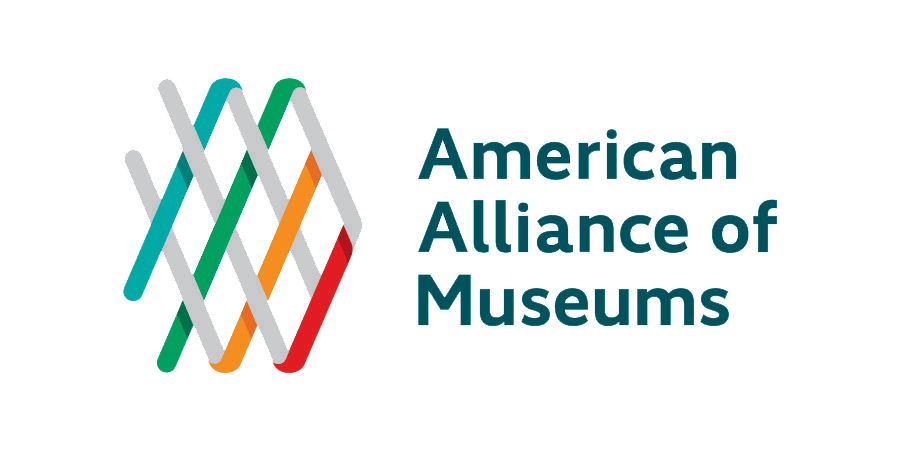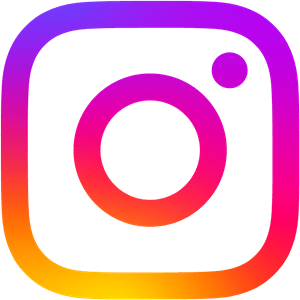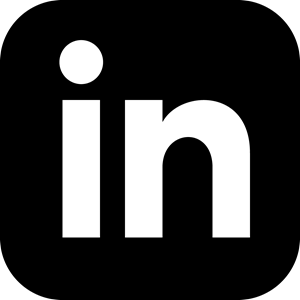2026 Annual Meeting & MuseumExpo Open Call for Proposals

2026 Call for Proposals
The AAM 2026 call for session and poster proposals closed September 26. Notifications will be sent about proposals in December.
About the Theme
The Museum Odyssey
Time shapes our lives—marking progress and change, preserving memory and meaning, and connecting us across generations. It shapes museums too—and museums, in turn, shape time: as timekeepers, travelers, chroniclers, and seers who deepen our understanding of humanity across the ages.
From the founding of a nation to technological and scientific breakthroughs, from gradual evolutionary shifts to seismic environmental change, history is shaped by moments, both fleeting and enduring, big and small. Museums bring these moments to life through immersive experiences that illuminate artistic movements, capture groundbreaking discoveries, and reveal the mysteries of our universe. In doing so, they demonstrate that time is the foundation of all inquiry, learning, and discovery.
As the United States commemorates its 250th anniversary in 2026, museums have a unique opportunity to explore the timely, the transitory, and the transformational. This historic milestone is a chance to reexamine the past, embrace the present, and shape the future.
Philadelphia, the birthplace of American democracy, provides the ideal setting for this exploration. Home to the nation’s first public library, first zoo, and first combined art school and museum, the city stands as a testament to the power of preserving and interpreting history. Its landmarks, historic sites, and museums ensure that the lessons of the past remain accessible and relevant for future generations—just as museums everywhere do.
The 2026 AAM Annual Meeting & MuseumExpo invites museum professionals to investigate how museums interpret and mark the passage of time to shape public understanding of our world and our place in it today and in the future.
Session proposals are welcomed under the following subject tracks.
Museums as Timekeepers
Museums that preserve, protect and adapt through time.
This track explores how museums transmit legacies across generations. Through conservation, governance, institutional design, and enduring relationships, museums act as stewards of memory and meaning. Proposals may explore how museums uphold long-term care, adapt over time, and build legacy and continuity into every aspect of their work.
Subcategories
1. Collections Stewardship & Conservation
Evolving approaches to preserving physical and digital collections that reflect ethical stewardship, public values, and inclusive, sustainable access.
2. Storytelling & Engagement
Using narrative, interpretation, and engagement to build lasting inter- and intragenerational connections that foster creative aging, lifelong learning, social cohesion, and cultural continuity.
3. Mission, Leadership & Institutional Evolution
Aligning mission and leadership with enduring values while evolving institutional identity for resilience across time.
4. Infrastructure, Security & Continuity Planning
Designing facilities, systems, and risk management strategies that ensure institutional longevity and adaptive capacity.
5. Evaluation for Legacy & Generational Impact
Using research, evaluation, and longitudinal data to understand, demonstrate and sustain institutional relevance across generations.
6. Sustaining Institutional Capacity & Fundraising
Developing inclusive, forward-looking financial and operational models to secure museums’ long-term stability and public trust.
7. Scholarship & Theories of Time
Drawing on historical, cultural, and museological scholarship to shape long-term perspectives and guide institutional practices.
8. Other
The questions below are offered as inspiration; proposals may address these or explore other relevant issues and topics within the Museums as Timekeepers track.
- How can museums adapt their preservation and archival practices to emerging risks, ensuring that collections remain accessible for future generations?
- How do museums balance their role as keepers of tradition with the need to reinterpret and update narratives over time?
- How can membership programs foster deeper connections across generations and sustain engagement over time?
- How can museums integrate creative aging programs to honor lived experience as a form of preservation and foster lifelong engagement across generations?
- In an era of information overload, how can museums effectively communicate the relevance of their stories—whether through marketing, public relations, or other forms of communication?
- How do museums document societal challenges over time, and what lessons do they share about resilience and change?
Museums as Time Travelers
Museums that transport audiences across eras and realities.
This track explores how museums create immersive experiences that connect audiences to different points in time through narrative, technology, and design. Proposals may explore how museums use these tools and strategies to bridge past, present, and future—encouraging reflection, inquiry, imagination, and understanding.
Subcategories:
- Immersive and Multisensory Experience Design
Designing impactful visitor experiences using theatrical techniques, immersive technologies, and sensory storytelling. - Interpretation and the Meaning of Time
Exploring how museums help audiences experience and understand time through interpretive strategies that connect different moments and perspectives. - Digital Storytelling and Technology
Using digital platforms and tools to create inclusive, engaging narratives that resonate across time and identities. - Ethics of Reconstruction and Representation
Navigating ethical challenges in how museums reimagine, represent, or recreate knowledge, environments, and cultural expressions over time. - Co-Created and Community-Centered Narratives
Collaborating with communities to co-create narratives that reflect diverse experiences and evolving understandings of the past, present, and future. - Other
The questions below are offered as inspiration; proposals may address these or explore other relevant issues and topics within the Museums as Time Travelers track.
- How do museums use a variety of approaches, from first-person interpretation to VR, AR, AI, and immersive media, to create time-travel experiences for visitors?
- How can exhibitions and education programs juxtapose past and present to challenge assumptions about history and progress?
- How do museums interpret objects, artworks, and scientific or natural specimens in ways that connect visitors to people, eras, and events across time?
- What ethical considerations arise when reconstructing historical events, cultures, or societal or organizational environments?
- How do museums ensure accessibility and inclusivity in time-travel storytelling?
- How can intergenerational and creative aging programs use memory, storytelling, and immersive tools to connect visitors across past, present, and future?
Museums as Chroniclers
Museums that document and interpret unfolding history.
This track focuses on the museum’s role as witness, recorder, and interpreter of contemporary events and societal change. Proposals may explore how museums document the present, engage communities in real time, and shape the historical record with transparency and integrity.
Subcategories:
- Contemporary Collecting & Documentation
Developing responsive strategies to collect and preserve materials that reflect the present moment. - Interpretation of Social, Cultural, Scientific, and Environmental Issues
Creating exhibitions and programs that address the complex social, cultural, scientific, or environmental issues with research, insight, and inclusion. - Media, Publications & Public Narrative
Using communications, editorial platforms, and storytelling to shape public understanding of unfolding events in real time. - Fundraising & Values Alignment
Aligning fundraising strategies and donor relationships with evolving public values and institutional purpose. - Participatory Archives & Shared Authority
Partnering with communities to co-create archives, oral histories, and narratives rooted in shared experience. - Scholarship & Real-Time Research
Applying scholarly and community-based research to interpret the present within broader historical context. - Other
The questions below are offered as inspiration; proposals may address these or explore other relevant issues and topics within the Museums as Chroniclers track.
- How do museums responsibly document and share history as it unfolds, particularly in moments of crisis or social change?
- How can collections and research practices ensure that all communities and perspectives are represented in museum narratives?
- How can development and fundraising efforts support how the museum adapts to changing demographics or values?
- How do museums address nuanced histories and competing narratives with transparency and integrity?
- How do curation, exhibitions, and education programs help museums document and interpret history as it unfolds?
Museums as Seers
Museums that anticipate and help shape the future.
This track explores how museums prepare for what’s next—by identifying trends, planning for change, and fostering innovation. Proposals may explore strategic foresight, cross-sector collaboration, and institutional transformation aimed at building a more responsive and resilient future.
Subcategories:
- Strategic Foresight & Futures Planning
Using tools like scenario planning and horizon scanning to anticipate change and shape future realities. - Civic & Community Engagement
Building inclusive platforms for dialogue, participation, and advocacy that help communities navigate change together. - Institutional Resilience & Workforce Strategy
Evolving leadership, staffing, and business models to strengthen museums for long-term adaptability. - Innovation & Cross-Sector Collaboration
Pursuing new ideas, technologies, and partnerships to drive cultural and organizational innovation. - Responding to Forces of Change
Addressing external drivers—such as climate, technology, and social transformation—with agility and vision. - Other
The questions below are offered as inspiration; proposals may address these or explore other relevant issues and topics within the Museums as Seers track.
- How do museums help audiences make sense of future challenges such as climate change, emerging technologies, and social transformation?
- What lessons from historical museum practice are helping institutions adapt and innovate for future challenges?
- What role can creative aging play in advancing museums’ lifelong learning initiatives in the future?
- What role do museums play in fostering civic engagement and public discourse about the future?
- What are best practices for managing museum resources—collections, funding, personnel—to ensure longevity and institutional resilience?
- How do museums support artists, scientists, researchers, communities, and collaborators in imagining new possibilities?
Museum Essentials and Evolving Practices
Core competencies and emerging strategies across all areas of museum work.
This track explores the foundational functions, emerging strategies, and core competencies that sustain museum impact—across time, change, and complexity. Proposals may explore tools, evolving practices, and peer-driven insights that foster professional growth, strengthen performance across museum functions, and build individual, institutional, and fieldwide effectiveness.
Subcategories:
- Leadership, Governance & Strategy
Advancing ethical leadership, effective governance, and strategic planning aligned with mission and values. - Human Resources & Organizational Culture
Supporting workforce development, inclusive hiring practices, and positive, adaptive organizational culture. - Collections & Registration
Promoting best practices in collections care, documentation, access, and management. - Curation & Exhibition Development
Innovating curatorial methods and exhibition design for diverse, engaging experiences. - Education, Engagement & Visitor Experience
Enhancing interpretation, learning models, and visitor services and experiences that reflect community needs and interests. - Marketing, Communications & Community Relations
Building trust and visibility through storytelling, media, and strategic community engagement. - Fundraising, Membership & Revenue Strategy
Developing sustainable income strategies and meaningful donor and member relationships. - Finance, Operations & Risk Management
Ensuring financial health, operational excellence, and preparedness for risk and disruption. - Technology & Digital Practice
Integrating digital tools and infrastructure across museum functions for greater impact and reach. - Evaluation, Research & Field Innovation
Applying data, evaluation, and research to drive innovation and continuous improvement. - Other
The questions below are offered as inspiration; proposals may address these or explore other relevant issues and topics within the Museum Essentials and Evolving Practices track.
- What day-to-day practices, tools, or models are helping museums work more efficiently, sustainably, and effectively?
- How are museums adapting core functions to meet new challenges and expectations?
- What practical strategies are museums using to build stronger teams, better governance, and more inclusive workplace cultures?
- How are museum professionals using data, evaluation, or feedback to improve programs, operations, or decision-making?
- What lessons learned from recent innovations or challenges can others apply to improve their own museum’s work?
Preparing Your Proposal
Engage with Attendees
How do you plan to engage with attendees? The 2026 AAM Annual Meeting & MuseumExpo will offer program formats that allow museum professionals from around the globe to connect and learn how museums are helping their communities address critical issues. Attendees will explore inspiring content across above five tracks centered on The Museum Odyssey:
- Museums as Timekeepers
- Museums as Time Travelers
- Museums as Chroniclers
- Museums as Seers
- Museum Essentials and Evolving Practices
Proposal Formats
Your proposal should fit into one of the following format types:
Session (60 minutes):
A panel or presentation on a broad topic with Q&A or other interaction elements. May include a slide presentation, with optional handouts or resources.
Room set: Theater style. Max: 5 presenters (including moderator).
Case Study (60 minutes):
A deep dive into one institution’s project or approach to a challenge or innovation, including how success was measured and confirmed as a model practice. May include a slide presentation, with optional handouts or resources. Room set: Theater style. Max: 3 presenters. Note: Presenters of accepted case studies will be asked to submit a summary of their case study by January 30, 2026 for inclusion in conference materials.
Learning Lab (120 minutes):
Hands-on session, ideal for skill-building and particularly suited to proposals in the Museum Essentials and Evolving Practices track. Participants engage directly with skills, methods, or prototypes. May include a slide presentation, with optional handouts or resources.
Room set: Round tables. Max: 4 presenters.
Roundtable (60 minutes):
Small group facilitated discussion around a shared topic or challenge. Facilitator(s) may invite participants to brainstorm in workgroups, collaborate on a project, or share stories. Slides are not required; handouts or other resources are encouraged.
Room set: Round tables. Max: 4 presenters.
Poster Session (10 minutes):
Visual presentation of a project, research initiative, or program initiative, followed by informal dialogue.
Max: 2 presenters.
Presenter Expectations
Proposals are encouraged to include presenters and institutions that reflect diverse demographics, cultural backgrounds, professional experiences, and perspectives.
Important: All listed presenters must confirm their participation via the submission portal.
Proposals may be rejected if this step is not completed. Presenters cannot be on more than 2 session proposals.
Crafting a Strong Proposal
- Title: Must clearly describe the topic or issue focus. Please avoid using the theme or track names in your title solely to align your session more closely to the theme (i.e., don’t include “Timekeeper,” “Time Traveler,” “Time Chronicler,” or “Time Seer” in the session title).
- Description: Clearly describe the topic, how it connects to the subject track and subcategory, and any type of interactivity. Provide specific and clear learning outcomes.
- Target Audience: Identify the primary audience for the proposal.
Proposal Timeline and Review Process
Call Opens: August 26, 2025
Deadline: September 26, 2025, at 11:59 PM PT
Notification: While we anticipated notifying presenters in November 2025, note that notifications will go out in December.
Proposals will be reviewed by the 2026 Content Advisory Committee (CAC)—a diverse group of subject-matter experts—based on alignment with the theme, audience needs, diversity of perspective, and suitability for the proposed format.
Strong Proposals Will:
- Align with the theme and subject track and subcategory
(Note: Proposals submitted under the “Museum Essentials and Evolving Practices” track are not required to address the Annual Meeting theme.) - Offer diverse and relevant viewpoints, including institutional, geographic, and cultural perspectives
- Address broad applicability across disciplines, communities, regions, and museum types
- Clearly state relevance and practical value to attendees
- Include actionable takeaways and opportunities for engagement
Reasons a Proposal May Be Declined:
- Narrow in scope or limited relevance to the field
- Lacking insight, innovation, or clarity
- Missing clear and compelling learning objectives
- Limited applicability across diverse audiences, cultural perspectives, institutional types, or geographic regions
Disqualification Criteria:
- Failure to follow submission instructions
- Presenters fail to complete the required presenter agreement
- Inclusion of presenter names or institutions in the session description or in fields other than designated fields
- Presenter is unable to attend in person (sessions take place May 21-23). (AAM Annual Meeting & MuseumExpo does not offer streaming capabilities.)
Proposal Grading Criteria:
- Clear alignment with the subject track subcategory
- Strong development, organization, and articulation
- Clear, specific, and relevant learning objectives
- Practical application, timely content, and actionable takeaways
- Representation of diverse perspectives (where applicable)
- Appropriate session format to support engagement and learning
You can download a copy of the proposal application questions to prepare your submission, and use the buttons below to submit your proposal.
IF YOU ALREADY SUBMITTED A SESSION:
- If you do not see the submit button on the submission form, this means the proposal has been finalized and submitted for review by the 2026 Content Advisory Committee.
- A PENDING status means the proposal has been submitted and is pending review by the 2026 CAC.
- A WORK IN PROGRESS status means the proposal has NOT been submitted for review and must be submitted by deadline of September 26, 11:59 PM PT.
- Presenter login issues? Forward the title of your proposal and the presenter’s name to aamproposals@aam-us.org. This is the same for anyone having difficulties adding or attaching presenters to a proposal. Please provide the name, professional title, institution name, and email address of the presenters to be added to the proposal.
- If you have questions about your proposal or need assistance, please email aamproposals@aam-us.org. Please include your proposal title and as much detail as possible.
Questions?
Contact aamproposals@aam-us.org with your questions about the call for proposals.
The American Alliance of Museums’ mission is to champion equitable and impactful museums by connecting people, fostering learning and community, and nurturing museum excellence.



